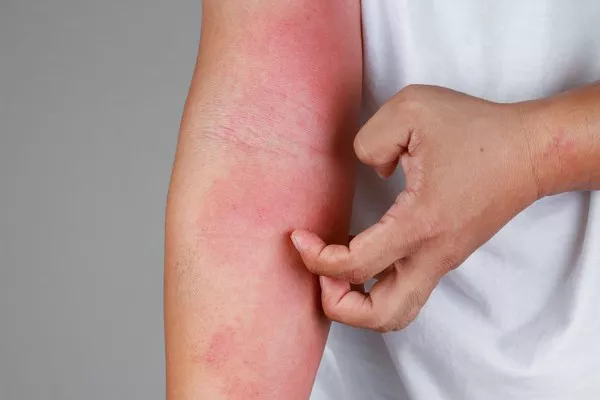In the midst of life’s daily challenges, you may notice your skin reacting with unexpected breakouts, dullness, or dark circles under your eyes. These symptoms aren’t just indicators of a bad night’s sleep; they can also signal the impact of stress on your skin.
Various factors like poor diet, lack of sleep, environmental pollutants, and genetics contribute to skin issues, but stress often plays a significant role that goes unnoticed. When stressed, your body releases hormones like cortisol, which can increase oil production in your skin glands, leading to acne and other skin problems.
Dermatological research highlights that stress can compromise the skin’s barrier function, making it less effective in protecting against harmful substances and retaining moisture. Moreover, stress can exacerbate existing skin conditions such as eczema, psoriasis, and rosacea, and may trigger new issues like hives and rashes.
During times of stress, the body prioritizes energy for survival functions, often neglecting skin health. This hormonal imbalance can induce inflammation and accelerate aging processes. Studies indicate that chronic stress can delay the skin’s healing process, making you more susceptible to infections and prolonged recovery times from wounds or acne.
Here are 7 proven strategies to manage stress effectively and promote healthier skin:
1. Aromatherapy: Utilize essential oils like lavender, chamomile, and rosemary to induce relaxation. Research published in the Journal of Alternative and Complementary Medicine suggests that inhaling these scents can activate brain areas associated with emotions, potentially reducing stress and anxiety levels.
2. Spa Treatments: Treatments such as massages, facials, and hydrotherapy are effective stress relievers. Massages, for instance, reduce muscle tension and promote relaxation by increasing endorphin and serotonin levels, while regular spa visits have been shown to lower cortisol levels.
3. Yoga: Incorporate yoga into your routine to combine physical postures, breathing exercises, and meditation. Research indicates that yoga can modulate the stress response by lowering cortisol levels and improving heart rate variability, enhancing stress resilience.
4. Meditation: Practice mindfulness meditation to achieve deep relaxation and heightened awareness. This technique reduces cortisol production and other stress hormones, alleviating symptoms of anxiety and improving emotional well-being.
5. Exercise: Engage in physical activities such as jogging, swimming, or brisk walking to release endorphins, the body’s natural mood elevators. Regular exercise also promotes better sleep, further reducing stress levels and enhancing overall health.
6. Healthy Diet: Maintain a balanced diet rich in fruits, vegetables, whole grains, and lean proteins to support stress management. Foods like salmon, nuts, and leafy greens contain omega-3 fatty acids, magnesium, and antioxidants known to reduce stress and anxiety. Limiting caffeine, sugar, and processed foods stabilizes mood and energy levels, minimizing the impact of stress on your health.
7. Cultivate Happiness: Foster happiness through activities that bring joy, practice gratitude, and nurture positive social connections. Research links happiness and positive emotions to lower cortisol levels, contributing to a healthier stress response. Engaging in hobbies, spending time with loved ones, and focusing on fulfilling activities can significantly enhance your well-being.
By integrating these strategies into your lifestyle, you can effectively manage stress and promote clearer, healthier skin. Taking proactive steps to reduce stress not only benefits your skin but also enhances your overall quality of life.
Related Topics:


























